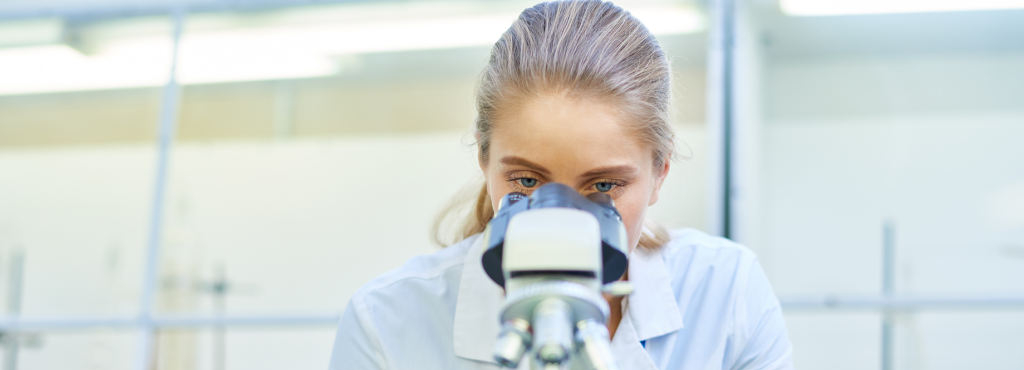By Sarika, IvyWise Medical School Admissions Counselor
You have taken all the right pre-med courses. You have worked diligently in a research lab for over a year. You have shadowed a neurosurgeon. You are on three volunteer committees — two of them in a leadership role. You know that you want to become a physician. You are ready. And then you realize that your pre-med classmates and friends have all done the same things! So, how do you set yourself apart from other applicants?
There is a simple yet not always easy answer: you personalize the process!
How to Personalize the Three Stages of the Med School Application Process
The medical school application process is multi-faceted: it consists of many tiers, from completing the primary and secondary applications to interviewing. While the process can seem daunting and mysterious, so is the path to becoming a physician. Admissions committees know this and want to make sure that applicants are ready to start this journey, which means it is your job to show them that you are prepared. This is where personalization comes in. You can personalize each stage of the application by demonstrating both your preparedness for medical school and how you can contribute to that school in a way no other applicant can.
1. The Primary Application
The primary application is the first step in the medical school application process. It is a general application, submitted directly through the American Medical College Application Service® (AMCAS®). Like the Common App for college admissions, the AMCAS is the centralized med school application processing service for the Association of American Medical Colleges (AAMC). After you hit submit and your primary application is verified, the system sends it to every medical school you selected. While the primary is a general application, it is also the first chance you will have to personalize the process by demonstrating why you want to become a physician.
Make sure to demonstrate how your background, skills, and interests/goals have led you to apply to medical school. Was it one event that led you to apply to become a physician? Was it a series of seemingly random occurrences? What have you done to prepare? The personal statement is called that for a reason — it is a way for you to highlight how you are uniquely poised to attend medical school.
2. The Secondary Application
This secondary (aka supplemental) application is a school-specific application, meaning you complete a different secondary application for each medical school to which you apply — much like supplement prompts in college applications. Where the primary application is used to discuss why you chose to apply to medical school in general, the secondary application is focused on demonstrating why you chose to apply to this particular medical school. Some medical schools choose to send secondaries to every applicant, whereas some only send secondaries to those who meet a certain set of academic criteria. Others use a holistic approach instead. However you receive it, getting a secondary is your next opportunity to use your experiences and personality to set yourself apart.
Think about the following questions when completing your secondary application: Why did you select that medical school? What is it about that school’s mission and vision that resonates with you? How do you see yourself contributing to their student body? Use your own background and experiences to highlight the academics, research, clinical experience, and extracurricular activities important to you, and how this makes you an ideal fit for the school.
3. The Interview
Great news: you received an invitation to interview! This is your chance to really stand out. Medical school interviews can take many forms: traditional one-on-one meetings, group interviews, multiple mini-interviews (MMIs), or a combination of any of the above. Regardless of the type of interview, the purpose is all the same: the interviewers want to get to know you. This is a crucial stage of the application process. The admissions committee has read about you on paper, but now you need to show them who you are as a person.
You get a chance to talk about yourself and highlight the distinctive experiences you have had, so take the opportunity to talk about activities unique to you. What are your proudest professional and/or moments? Have you had an experience where the outcome was not what you expected? What did you learn from it? How do you see yourself fitting in with the culture of that specific school? The key at this stage is to let your personality and experiences shine. Even with a prescribed set of interview questions, you can still customize your answers!
Taking Control of the Med School Application Process by Showing Your Personality
In my experience reading medical school applications, the applicants who stand out the most do so not only because of their professional experience, but because of who they are as a person. Take control of the process by highlighting your personality and the experiences you have had that set you apart from other applicants. I remember the applicants who brought a unique lens to medical school much more than those with exemplary qualifications but no personality to show. Each of the various stages of the medical school application process is an admissions committee’s window into you as a potential future student at their school.
At IvyWise our team of experts includes medical school admissions counselors who have direct experience reading applications and making decisions at highly selective medical schools. We can work with you to find and apply to your best-fit medical programs with applications that highlight your best-self to admissions committees — every step of the way. For more information on how we can guide you through the medical school admissions process, contact us today.




